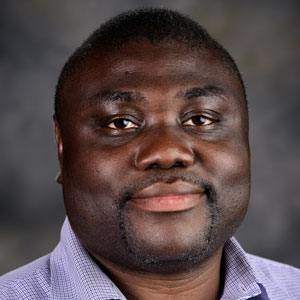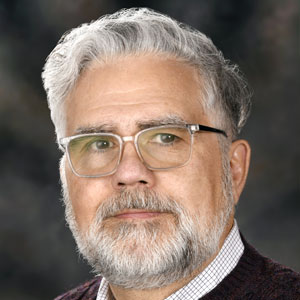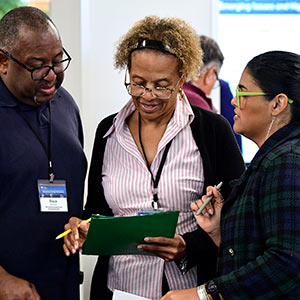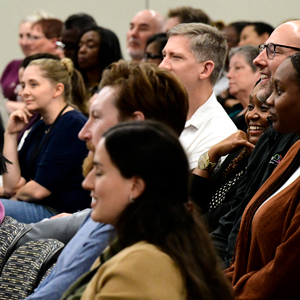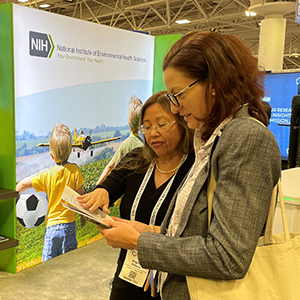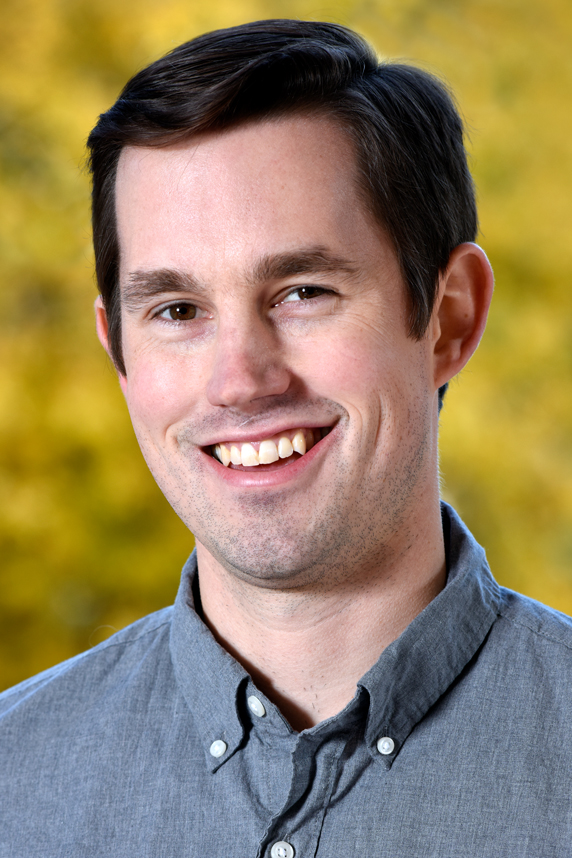 “There's always a possibility that things will go awry, and you will have to come up with something totally different,” Nodzenski said. “In the case of GADGETS, that didn't happen.” (Photo courtesy of Steve McCaw / NIEHS)
“There's always a possibility that things will go awry, and you will have to come up with something totally different,” Nodzenski said. “In the case of GADGETS, that didn't happen.” (Photo courtesy of Steve McCaw / NIEHS)Michael Nodzenski, an NIEHS Intramural Research Training Award predoctoral fellow, has won the 2021 Larry Kupper Award for his work using an algorithm to detect genetic causes of young-onset diseases. The award recognizes the best published paper related to dissertation research in the biostatistics department at the University of North Carolina at Chapel Hill (UNC). It is named after a biostatistician and distinguished UNC professor known for pioneering statistical methodologies.
Nodzenski is pursuing his doctorate at UNC while working in the NIEHS Biostatistics and Computational Biology Branch (BCBB). The publication he co-authored was also selected as an Intramural Paper of the Month for the January issue of Environmental Factor. His paper highlights a statistical approach called “Genetic Algorithm for Detecting Genetic Epistasis using Triads or Siblings,” or GADGETS.
Tackling problem of missing heritability
According to Nodzenski, only a small fraction of the heritability of most heritable diseases has been explained by single nucleotide polymorphisms (SNPs), which are the most common kind of genetic variation in people. It has been hypothesized that much of the missing heritability may be due to interactions between SNPs that alter a given trait, a phenomenon known as epistasis.
GADGETS will enhance scientists’ ability to detect epistatic interactions by genotyping affected children and their parents, potentially shedding light on the origins of heritable conditions such as cleft lip or cleft palate (see sidebar).
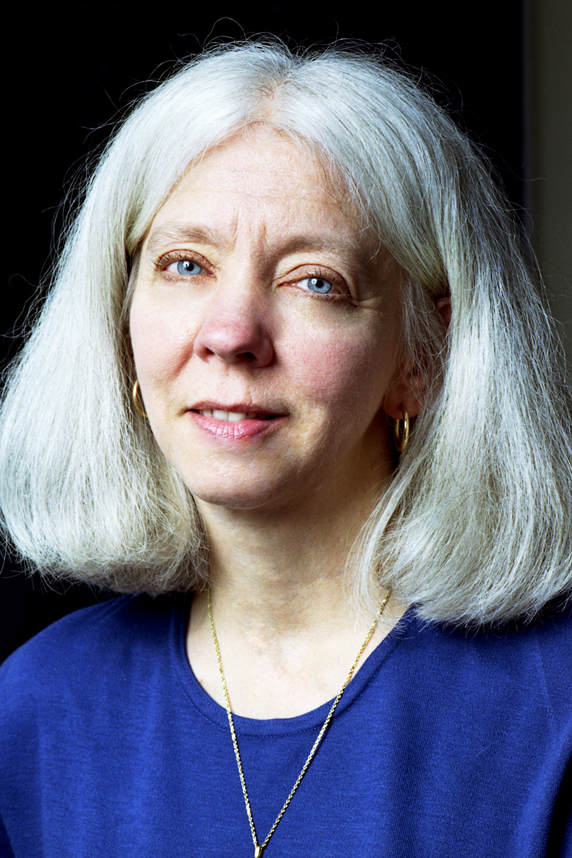 “The paper by Michael and colleagues is the best I have ever co-authored with a student,” said Weinberg. (Photo courtesy of Steve McCaw / NIEHS)
“The paper by Michael and colleagues is the best I have ever co-authored with a student,” said Weinberg. (Photo courtesy of Steve McCaw / NIEHS)“Michael is a truly remarkable student, especially in regard to his clarity of thinking, his creativity, and his skills in developing and debugging efficient software,” said Clare Weinberg, Ph.D., BCBB senior investigator.
Recently, Nodzenski took time out from parental leave and caring for his two-month-old daughter to speak with Environmental Factor about his research and career goals.
Focused on statistical programming
Environmental Factor: What does this award mean to you?
Michael Nodzenski: It’s very flattering to be recognized. Students at UNC do high-quality research, and I’m glad the awards committee viewed this paper so positively.
EF: Was science something that you always knew would be your calling?
MN: It was definitely not something I knew was going to happen — there was a lot of luck involved. I was a biology major as an undergraduate, but I didn’t want to be a doctor, and I didn’t care for bench work, so my options were limited. But I could do statistical programming. An employer encouraged to me to pursue a master's degree while working full time. Ultimately, I applied to Ph.D. programs.
Not held back by COVID-19 pandemic
EF: How did you get involved in the GADGETS research project?
MN: I inherited the project, but you never know exactly how things are going to turn out. Clare, my advisor, was confident we would be able to get this published. I was optimistic.
EF: Was this type of project relatively easy to pursue during the COVID-19 pandemic?
MN: Yes, I could stay home and do the work. Compared to people who do studies on mice, who literally could not get into the lab, I was not held back.
Mining genetic data
EF: Tell us a little about your paper.
MN: GADGETS is purely a search algorithm. The idea is to mine genetic data for collections of SNPs that appear to interact, which is known as epistasis. We know that epistatic properties exist in the data, and our method will help us pick out collections of interacting SNPs that may play a role in heritable diseases.
EF: Using this algorithm, can you narrow down the possibilities far enough that you can hand results to an experimental laboratory for further testing?
MN: Yes, that is exactly what the method is best suited for. The goal is to get the subset of SNPs down to a manageable number where you could do more intensive follow-up testing. This method can search over a much larger dataset than other approaches.
Strong mentorship
EF: What has Clare Weinberg offered you as a mentor?
MN: Her pure enthusiasm is one of her best qualities as a scientist. I'm more reserved, but I think striving to match her enthusiasm is definitely a good thing.
EF: What’s next for you?
MN: My plan is to apply for faculty positions. Of course, those are very competitive. I’d like to continue research into high-dimensional data mining and machine learning, using high performance computing to identify potential genetic risks. But I'm open. If a position came open at NIEHS, I would absolutely apply for it.
Citation:
Nodzenski M, Shi M, Krahn JM, Wise AS, Li Y, Li L, Umbach DM, Weinberg CR. 2021. GADGETS: a genetic algorithm for detecting epistasis using nuclear families. Bioinformatics; doi:10.1093/bioinformatics/btab766 [Online 12 November 2021].
(John Yewell is a contract writer for the NIEHS Office of Communications and Public Liaison.)





